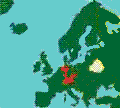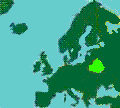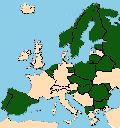and mail this URL to your friends!
|
and mail this URL to your friends! |

 Offentlighet
av forvaltningen skal ifølge offenliglova
" leggje til rette for at offentleg verksemd er open og
gjennomsiktig, for slik å styrkje informasjons- og ytringsfridommen,
den demokratiske deltakinga, rettstryggleiken for den enkelte,
tilliten til det offentlege og kontrollen frå ålmenta. "
Ifølge grunnlovens
§ 100 "paaligger (det) Statens Myndigheder at lægge
Forholdene til Rette for en aaben og oplyst offentlig Samtale"
med å gi innsyn. I 1766 ble den første
offentlighetslov (Tryckfrihetsförordningen) introdusert
i Sverige-Finland,
takket en Finne
kalt Anders
Chydenius,
som kjempet for demokrati, likeverd og respekt av
menneskerettigheter. 1888 kom slike bestemmelser i Kolumbia, 1919
i forfatningen og 1951 som lov i Finland (uavhengig
1917) og 1966 i USA.
Offentlighet
av forvaltningen skal ifølge offenliglova
" leggje til rette for at offentleg verksemd er open og
gjennomsiktig, for slik å styrkje informasjons- og ytringsfridommen,
den demokratiske deltakinga, rettstryggleiken for den enkelte,
tilliten til det offentlege og kontrollen frå ålmenta. "
Ifølge grunnlovens
§ 100 "paaligger (det) Statens Myndigheder at lægge
Forholdene til Rette for en aaben og oplyst offentlig Samtale"
med å gi innsyn. I 1766 ble den første
offentlighetslov (Tryckfrihetsförordningen) introdusert
i Sverige-Finland,
takket en Finne
kalt Anders
Chydenius,
som kjempet for demokrati, likeverd og respekt av
menneskerettigheter. 1888 kom slike bestemmelser i Kolumbia, 1919
i forfatningen og 1951 som lov i Finland (uavhengig
1917) og 1966 i USA.
Siden den gang har mer enn 80 stater innført slike offentlighetslover. Mange stater garanterer offentlighet av forvaltningen i forfatningen. Den globale trenden er at offentlighet i forvaltningen er et mennekerett. Mer enn 115 stater med mer enn 5,9 milliarder innbyggere har offentlighetslover eller tilsvarende regler i grunnlovene. Alle stater i Europa har offentlighetslover eller forbereder slike lover. Nesten alle OECD medlemmer og alle siviliserte land anerkjenner slike rettigheter. Right2Info.org gir en oversikt. Transparency var "Word of the Year" i 2003 og 28. September er "Right to Know" Day siden 2003.
Innsyn er et grunnlovfestet menneskerett og støttes av grunnlovens § 100 og Article 19 (2) International Covenant on Civil and Political Rights dvs. "this right shall include freedom to seek, receive, and impart information". I Norge gir Offentlig elektronisk postjournal (OEP) enkle muligheter å søke og å bestille innsyn elektronisk.
11.09.2025: Til Kongen i statsråd: Klage på avslag om innsyn etter offentleglova
10.09.2025: Svikt i Sivilombudets tilsyn av innsyn Finansdepartementet
09.07.2025: Klage til overordnet forvaltningsorgan Helsedepartementet
19.05.2025: Svar på klage vedr. innsynskrav: Er "Godkjenning av samvalgsverktøy" gyldig?
18.04.2025: Innsyn i medhold av offentlighetsloven i vedtak om tvangsmedisiering
25.03.2024: Presisering av innsynet: Foreløpig drøftningsresultat Basal eksponeringsterapi
03.03.2025: Innsyn nedleggelse av BET-døgnseksjon
29.11.2024: Klage mot avslag av innsyn ”av omsyn til Norges utenrikspolitiske interesser”
11.10.2024: Innsyn: Hvorfor skal dagens organisering av BET-seksjonen ikke bestå?
04.10.2024: Innsyn i medhold av offentlighetsloven i vedtak om tvangsmedisiering
12.08.2024: Innsyn: Foreløpig styringsgruppe består av Leif Erik Rønneberg Hauge og Mirjam Lauritzen uten nødvendig brukerrepresentant som så godkjenner sitt eget arbeid
12.08.2024: Hvem er med i det interregionale fagdirektørmøtet og hva ble besluttet?
11.08.2024: Innsyn i beslutningen at det skal iverksettes en konsekvensutredning av BET tilbudet
02.08.2024: Innsyn i brevet fra Likestillings- og diskrimineringsombudet (LDO) til Vestre Viken HF om BET
01.08.2024: Innsyn: BET drøftingsresultat at "Dagens organisering (av BET) vil ikke bestå": En beslutning som det ikke finnes dokumenter for
04.11.2022: Nektelsen av innsyn i dobbelbeskatning påklages
28.03.2022: Forskningsråd: Klage mot delvis nektelse av innsyn ihht. offentleglova (offl.) § 15 andre ledd jf. § 12 c)
11.12.2021: How does the Norwegian government manage to deal with around 300,000 requests for access to files per year?
08.06.2021: Klage mot avvisning av begjæring om innsyn (eksternt konsulentfirma)
09.10.2020: Klage mot Fylkesmannens vedtak om avvisning av å behandle klage på avslag om innsyn
18.07.2020: Åpenhet rundt telefonregningen: Stopp svindel: Hvordan få uberettiget trekk fra telefonregningen refundert
14.07.2020: Klage til Sivilombudsmannen på avslag om innsyn – TIPS – anonymiserte data om dødsfall
01.07.2020: Klage mot nektelse av innsyn - håndtering av varsler - arbeidsmiljøklager og faktaundersøkelsen
03.10.2018: Klage mot nektelse av innsyn: Faktaundersøkelsen
18.01.2018: Gjennomføring av Fylkesmannens vedtak 2.11.17 (ref 2017/8898)
12.08.2017: Begjæring av innsyn i epost kommunikasjonen mellom Grimstad kommune og Farm In Action
09.06.2017: Helsedirektoratet (HD) har ikke journalført mange dokumenter: Hva har HD å skjule?
04.11.2015: Resolusjon om rettighetene til personer med nedsatt funksjonsevne: Er det «nødvendig for å sikre forsvarlege interne avgjerdsprosessar» å unnta sak 15/2740 dok. 4, 7, 10 og 11 fra offentligheten?
27.11.2014: At pasientenes personlige data er konfidensiell blir misbrukt å nekte innsyn i helsepersonells pliktbrudd.
27.10.2014: Klage over nektelse av innsyn i NPEs retningslinjer som avviser menneskerettigheter og pasientrettigheter.
09. April 2014: Constitutional Complaint 1 BvR 897/14: Enforcement of the Human Right of Access to Information in Bavaria/Germany.
17.02.2014: Mener Mist-sjefen bør gå. Innsyn i kommunikasjonen med kulturdepartementet. KUDs epost til MIST. Sør-Trøndelag Fylkeskommune ber om klargjøring. MiST sitt svar.
09.06.2011: Hvorfor ønsker Utenriksdepartementet å svekke menneskeret innsyn?
20.10.2010: Forslag at SMK journalfører begjæringer om innsyn.
06.09.2010: Kraftfondet: Retten å vite ("Right to know") som forutsetning for folkestyret.
01.08.2010: Norge har ca. 1200 begjæringer om innsyn per 100 000 innbyggere, dvs. mer enn dobbelt so mange som USA (tabell A6).
18.06.2010: Lang natts ferd mot OEP - Computerworld
28.05.2010: Statsministerens kontor har ikke svart Difi om OEP
20.05.2010: Stengte dører: Tirsdag åpnet en ny nettside som ifølge Regjeringen skal gi intet mindre enn mer demokrati - Aftenposten
20.05.2010: Sørnett.no: Statsministerens kontor uten offentlig innsyn
19.05.2010: Statsministerens kontor (SMK) ikke ennå søkbart i OEP
18.05.2010: Nå kan du kikke forvaltningen i kortene - NRK
18.05.2010: Offentlig elektronisk postjournal endelig klar - digi.no
15.05.2010: Klage på nektelse av partsinnsyn og støtte til åpenhet i HiST.
20.04.2010: Økende utålmodighet om offentlig postjournal - journalisten.no
13.04.2010: FAD setter forsatt pris på interessen, men kan ikke gi mer info enn at det er grunn til å tro at OEP "blir lansert i første halvdel av inneværende år".
12.04.2010: Brev til FAD: Lanseringsdato for Publiseringstjenesten Offentlig elektronisk postjournal (OEP).
10.04.2010: Adressa Offentlig elektronisk postjournal
09.04.2010: Venstre stiller spørsmål til FAD hva statsråden skal gjøre for snarest å lansere OEP.
08.04.2010: For lite åpen post på HiST - Universitetsavisa
06.04.2010: Innsyn faktiske opplysninger i HiSTs kommunikasjon med Regjeringsadvokaten og KD.
30.03.2010: Utsettelse av Offentlig elektronisk postjournal er en skandale.
24.03.2010: Mitt råd til Jens: Sørg endelig for en laseringsdato for Offentlig Elektronisk Postjournal (OEP).
10.03.2010: Vil ha svar om offentlig journal - Norsk Redaktørforening
10.03.2010: Kaller OEP utsettelse for skandale. FADs svar.
07.03.2010: Full strid om IT-skandale - ABCNYHETER
23.03.2010: Kunnskapdepartement: Lansering av OEP i første halvdel av året.
01.03.2010: Må utsette offentlig postjournal på nytt - Computerworld
28.01.2010: Mitt råd til Jens: Sørg endelig for en laseringsdato for Offentlig Elektronisk Postjournal (OEP).
18.01.2010: Offentlig elektronisk postjournal OEP - Spm i fbm fastsetting av lanseringsdato
27.01.2010: Når lanseres offentlig postjournal? Kan dette tas opp igjen i Stortingets spørretime?
27.12.2009: Til kunnskapsdepartementet: Når lanseres offentlig postjournal?
22.12.2009: www.journalisten.no: Offentlig elektronosk postjournal (OEP) forsinket – igjen (alle artikler om OEP)
04.12.2009: Belønner Direktoratet for forvaltning og IKT sommel med publisering av postlister på Internett?
17.11.2009: Har Kunnskapsdepartementet ingen offentlig postliste publisert på Internett?
15.11.2009: Partsinnsyn i brev feilaktig unntatt offentlighet av HiST
14.04. 2009: ECHR Application no. 37374/05 by TÁSZ against Hungary recognizes access to public documents as human right.
12.12.2008: Fra nyttår trer den nye offentlighetsloven med styrket innsyn med forskrift i kraft (alle artikler om offentlighet)
02. December 2008: Norwegian Foreign Ministry answers.
26. November 2008: Anmodning om svar uten ugrunnet opphold fra den norske utenriksminister.
17. November 2008: Application to Norwegian Foreign Minister to access documents on Convention on Access to Official Documents
15.10.2008: Innsyn NTNU i brev til KD
Summer
2008: When will the last 5
German states adopt FOI laws?
![]()
6. October 2008: European Parliamentarians Call on Council of Europe to Redraft Substandard Convention on Access to Official Documents
11. August 2008: Letter to Chairman of CoE ministers about Convention on Access to Official Documents.
10. December 2007: "Recognise My Right" Campaign to support the work of the Council of Europe
15. October 2007: Council of Europe Treaty on Access to Documents. Civil Society Calls for Urgent Action: Draft Convention Fails to Ensure Adequate Protection of Right to Information.
24.06.2005: Sivilombudsmannens uttalelse om HiST: "Forholdet gir grunn til kritikk". Tvil om HiST kjenner reglene.
 Albania,
Argentina,
Armenia,
Azerbaijan,
Australia,
Austria, Belarus,
Belgium,
Belize,
Bosnia and
Herzegovina, Brazil,
Bulgaria,
Canada,
Colombia,
Council
of Europe, The
Czech Republic, Denmark, Eritrea,
Estonia,
European
Union, Finland, Fiji,
France,
Georgia,
Germany, Greece,
Hong
Kong, Hungary,
Iceland, India,
Ireland, Israel,
Italy,
Jamaica,
Japan,
Kazakhstan,
Kyrgyzstan,
Latvia,
Lithuania,
Luxembourg, Macedonia
(FYROM), Mexico,
Moldova, Mongolia,
Nigeria, The
Netherlands, New
Zealand, Norway, Pakistan,
Panama,
Peru,
The
Philippines, Poland,
Portugal,
Romania,
Russia,
Slovak
Republic, Slovenia,
South
Africa, South
Korea, Spain,
Sweden, Switzerland,
Tajikistan,
Thailand,
Trinidad
und Tobago, Turkmenistan,
Uganda,
Ukraine,
United Kingdom, United
States of America, Uzbekistan.
Albania,
Argentina,
Armenia,
Azerbaijan,
Australia,
Austria, Belarus,
Belgium,
Belize,
Bosnia and
Herzegovina, Brazil,
Bulgaria,
Canada,
Colombia,
Council
of Europe, The
Czech Republic, Denmark, Eritrea,
Estonia,
European
Union, Finland, Fiji,
France,
Georgia,
Germany, Greece,
Hong
Kong, Hungary,
Iceland, India,
Ireland, Israel,
Italy,
Jamaica,
Japan,
Kazakhstan,
Kyrgyzstan,
Latvia,
Lithuania,
Luxembourg, Macedonia
(FYROM), Mexico,
Moldova, Mongolia,
Nigeria, The
Netherlands, New
Zealand, Norway, Pakistan,
Panama,
Peru,
The
Philippines, Poland,
Portugal,
Romania,
Russia,
Slovak
Republic, Slovenia,
South
Africa, South
Korea, Spain,
Sweden, Switzerland,
Tajikistan,
Thailand,
Trinidad
und Tobago, Turkmenistan,
Uganda,
Ukraine,
United Kingdom, United
States of America, Uzbekistan.
 The
global
trends on the right to information are investigated by ARTICLE
19, the Global Campaign for Free Expression. Considering both
laws and constitutions FOI
is widely recognized as human right. Right2Info.org
gives an overview. FOI is based on
The
global
trends on the right to information are investigated by ARTICLE
19, the Global Campaign for Free Expression. Considering both
laws and constitutions FOI
is widely recognized as human right. Right2Info.org
gives an overview. FOI is based on
Article 19 of the Universal Declaration of Human Rights given by UN.
The International Covenant on Civil and Political Rights includes FOI in Article 19.
Article 13 of the American Convention on Human Rights includes the right to seek information. The Inter-American Court of Human Rights Confirms Right of Access to Government Information 19. September 2006 in case Marcel Claude REYES et al. v. Chile Case No. 12.108:.
Article 9 of the African [Banjul] Charter on Human and Peoples' Rights includes freedom of information. The Organization of African Unity is working on a Convention on Combating Corruption.
The Commonwealth promotes FOI since 1980. The Commonwealth Human Rights Initiative campaigns the Right to Information.
Article 10 of the European Convention on Human Rights includes Freedom of opinon and Freedom of Information. In 1981 the Council of Europe gave "Recommendation No. R (81) 19" on the access to information held by public authorities. A new Recommendation Rec(2002)2 was adopted 2002. 10. July 2006 the ECHR decides in case Sdruženi Jihoceské Matky v. Czech Republic, Application no. 19101/03 that Access to information is admissible. 11. April 2006 the ECHR decides in case GERAGUYN KHORHURD PATGAMAVORAKAN AKUMB v. ARMENIA Application no. 11721/04 to communicate the freedom to reveive information to Armenia.
The EU Charter of Fundamental Rights gives a right of access to European Parliament, Council and Commission documents.
 right2info.org
gives an overview on constitutional protection of the right to
information: In Sweden - with longest tradition - FOI is found in
the Constitution
(Chapter
2, Article 1 (2)). The constitutions of
many other countries i. e. Albania
(Art.
23), Belarus
(Art. 34), Belgium
(Art. 32), Bulgaria
(Art. 41), Croatia
(only for journalists: Art. 38), Czech
Republic (Charter of Fundamental Rights and Freedoms: Art. 17),
Estonia
(Art. 44), Finland (Constitution,
Section
12), Georgia (Art. 41), Hungary
(Art.
61), Lithuania
(Art. 25), Macedonia
(Art. 16), Moldavia
(Art. 34), Netherlands
(Art. 110), Poland
(Art. 61), Portugal
(Art. 268), Rumania
(Art. 31), Russian
Federation (Art. 29), Slovenia
(Art. 39), Slovakia
(Art. 26), Spain
(Art. 105 b), Argentina
(Art. 43), Kazakhstan,
Kyrgyzstan,
Malawi
(Art. 37), Mongolia
(Art. 16, 17), Mozambique
(Art. 74), Nepal
(Art. 16), Panama (Art. 42,43,44),
the Philippines
(Art. III, Sec. 7), Peru
(Art. 200(3)), the Republic
of South Africa (sec. 16), Tanzania
(Art. 18(2)), Tajikistan,
Thailand
(Sec. 58), and Turkmenistan
(26) all guarantee the right to access information held by the
State.
right2info.org
gives an overview on constitutional protection of the right to
information: In Sweden - with longest tradition - FOI is found in
the Constitution
(Chapter
2, Article 1 (2)). The constitutions of
many other countries i. e. Albania
(Art.
23), Belarus
(Art. 34), Belgium
(Art. 32), Bulgaria
(Art. 41), Croatia
(only for journalists: Art. 38), Czech
Republic (Charter of Fundamental Rights and Freedoms: Art. 17),
Estonia
(Art. 44), Finland (Constitution,
Section
12), Georgia (Art. 41), Hungary
(Art.
61), Lithuania
(Art. 25), Macedonia
(Art. 16), Moldavia
(Art. 34), Netherlands
(Art. 110), Poland
(Art. 61), Portugal
(Art. 268), Rumania
(Art. 31), Russian
Federation (Art. 29), Slovenia
(Art. 39), Slovakia
(Art. 26), Spain
(Art. 105 b), Argentina
(Art. 43), Kazakhstan,
Kyrgyzstan,
Malawi
(Art. 37), Mongolia
(Art. 16, 17), Mozambique
(Art. 74), Nepal
(Art. 16), Panama (Art. 42,43,44),
the Philippines
(Art. III, Sec. 7), Peru
(Art. 200(3)), the Republic
of South Africa (sec. 16), Tanzania
(Art. 18(2)), Tajikistan,
Thailand
(Sec. 58), and Turkmenistan
(26) all guarantee the right to access information held by the
State.
 |
|
 Freedom
of Information came 1766
to Sweden, 1951
to Finland, 1966
to den USA, 1970 to Norway
and 1985
to Denmark In 1981 the Council of Europe gave "Recommendation
No. R (81) 19" on the access to information held by public
authorities. A new Recommendation
Rec(2002)2 was adopted 2002. Both EU and nearly all countries in
the EU and Europe adopted such laws. However citizen rights vary and
there are no minimum standards. In order to keep up with the
international development freedom of information should be
strengthened in EU member states. Here is a petition
to the European Parliament.
Freedom
of Information came 1766
to Sweden, 1951
to Finland, 1966
to den USA, 1970 to Norway
and 1985
to Denmark In 1981 the Council of Europe gave "Recommendation
No. R (81) 19" on the access to information held by public
authorities. A new Recommendation
Rec(2002)2 was adopted 2002. Both EU and nearly all countries in
the EU and Europe adopted such laws. However citizen rights vary and
there are no minimum standards. In order to keep up with the
international development freedom of information should be
strengthened in EU member states. Here is a petition
to the European Parliament.
Support Freedom of Information, by
the following call of Statewatch (click here):
I/We
support the call to EU institutions for a democratic and accountable
"Open Europe" on access to documents.
Warning: I do not accept any liability that the information on these pages is correct, accurate or up to date!
Please feel free to link this site!
Thanks to all, who gave me this information. Please do not hesitate to mail me if you have additional information.
Visitor
No.
since
2. January 2002
[Petitions] [Violations of Human Rights] [Patients Rights in Europe] [Critique of Patients Rights in Germany] [Back to Homepage]